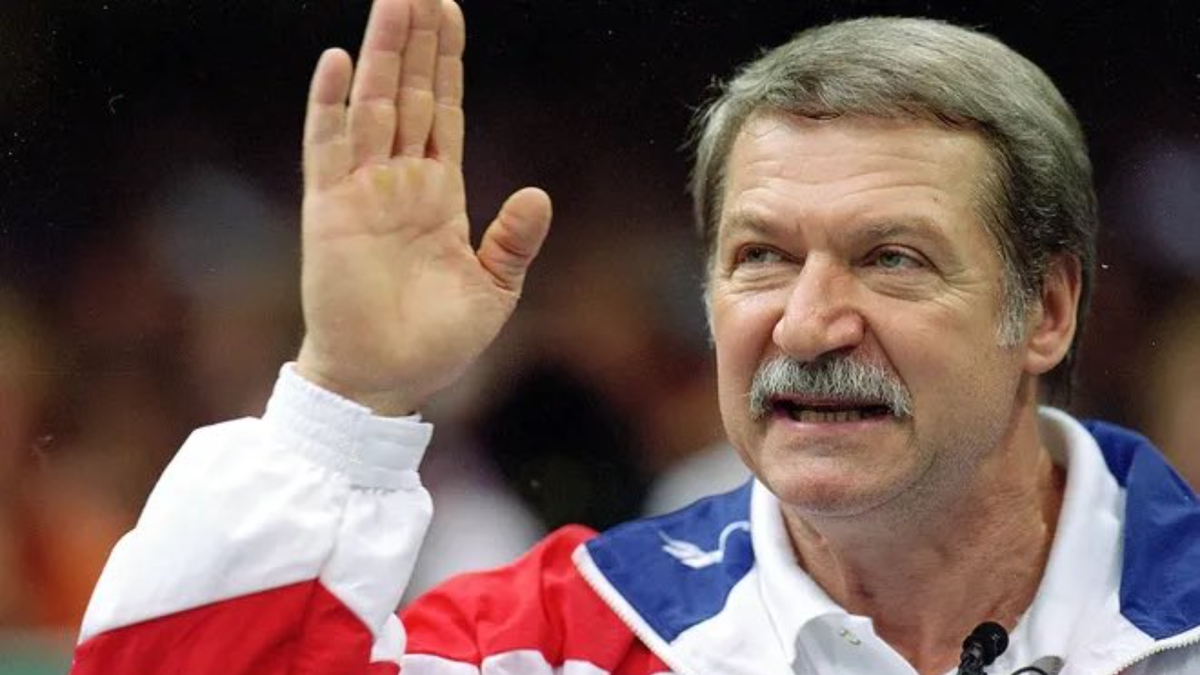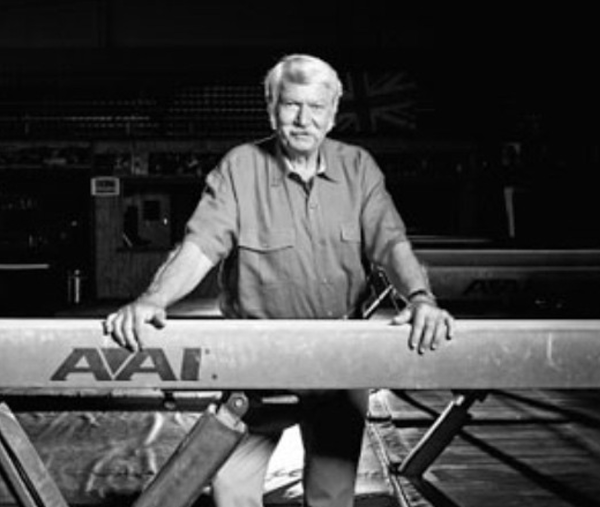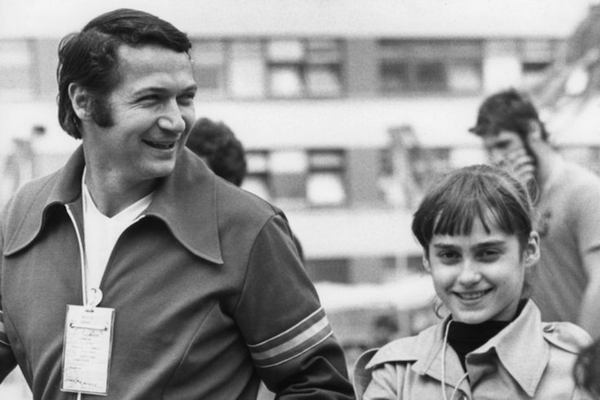



Bela Karolyi, the legendary gymnastics coach who guided stars like Nadia Comaneci and Mary Lou Retton to Olympic gold, has passed away at the age of 82. USA Gymnastics confirmed his death, though the cause remains undisclosed. While his later years were marred by allegations of abus__e coaching practices, Karolyi’s profound impact on the sport is indisputable. Nadia Comaneci, who often credited Karolyi for shaping her iconic career, honored his memory with a heartfelt Instagram tribute. Her post featured a series of photos, including a poignant shot of the two walking together in the woods. Her message read, “A big impact and influence in my life,” showing just how deep their bond was.
Watch What’s Trending Now!
Although Karolyi’s achievements were monumental, his methods often sparked criticism. Because Karolyi was never one to sugarcoat things, famously saying, “My attitude … is never to be satisfied… Never enough, never.” That drive for perfection left a lasting impact on gymnastics, for better or worse. People either loved him or didn’t, but his influence was undeniable. Nadia, too, took this to heart, knowing that under Karolyi’s watch, only the best would do. Even with all the criticism that came after his passing, he’s still loved by those who trained with him, as many continue to show their appreciation in meaningful ways.

At a private memorial service, Karoly’s memory at a solemn service attended by his loved ones and close friends gathered to celebrate his dedication not only to gymnastics but also, to the essence of life itself. His family emphasized how Houston became his home and calling after he departed from Romania in the 1980s.
They shared that Karolyi’s impact went far beyond the gym — he was “the father of gymnastics,” and his legacy would be felt for generations. While his life was far from a walk in the park, his influence on the sport and his athletes will never be forgotten. As they said, “His enthusiasm for life will be remembered forever on and off the screen.” Nadia and many others continue to carry on his legacy through every somersault and jump in the realm of gymnastics.
However different gymnasts have characterized his coaching style as tough and uncompromising. Dominique Moceanua member of the Magnificent 7’team which claimed victory at the 1996 Atlanta Olympics recounted a relationship, with Karolyi present in her autobiography and recent interactions, on social media platforms. “His harsh words and critical demeanor often weighed heavily on me,” Moceanu wrote. “While our relationship was fraught with difficulty, some of these moments of hardship helped me forge and define my own path.”
Dominique Moceanu and other athletes described Bela Karolyi’s coaching style as demanding yet instrumental in their journey to becoming champions. Nadia Comaneci also faced significant stress during her time training under him but often acknowledged that his steadfast belief in her abilities played a pivotal role in her success. She credited his coaching techniques for pushing her to pursue excellence and continuously improve herself. But beneath the surface of his famed techniques lies a controversial question: what made his coaching so polarizing? Was it merely his strictness, or something far more unsettling?
Inside the ruthless gym where champions were made—and broken
Bela Karolyi’s coaching style was infamous for its intensity and strictness, with little room for anything other than perfection. He ran his gym like a military boot camp—hard work, no excuses, and no emotional distractions. His gymnasts knew they were in for grueling hours of practice, often lasting seven hours a day, with only one day off a week if they were lucky.
On a typical day, the gymnasts would be under constant pressure, with Karolyi observing their every move and offering sharp, unrelenting critiques. His famous line was “Do it again,” no matter how well the gymnast performed. He tolerated no mistakes, no complaints, and no signs of weakness. If a gymnast showed any self-doubt or fear, Karolyi would either ignore them or berate them into pushing harder. His girls had to be like “little tigers”—always aggressive, always striving for more, without a moment to relax or let their guard down.

For someone like Kim Zmeskal, who had a stress fracture in her wrist, or Betty Okino, who had a broken elbow, Karolyi expected them to power through the pain. Even with injuries, his focus remained on flawless execution, often dismissing physical limits. He believed in toughening his gymnasts to be mentally and physically unbreakable, pushing them to the brink so only the strongest would survive.
In his eyes, American gymnasts were spoiled by their “weak” parents and lacked the mental toughness needed to succeed on the world stage. He made no effort to cultivate personal relationships with his athletes, refusing to acknowledge their lives outside of gymnastics. Emotional support was non-existent; it was all about the sport, and if you weren’t all in, you were out.
But despite the toll his methods took on the girls, Karolyi’s results spoke for themselves. His gym produced Olympic gold medalists like Mary Lou Retton and Nadia Comaneci, and he led American gymnastics to new heights. Still, the emotional and physical cost was high. Many gymnasts who went through Karolyi’s program suffered long-term psychological damage, driven to their breaking points. While he produced winners, critics argued that his methods could ruin the athletes mentally, leaving them physically worn out and emotionally scarred by the intense pressure and demands.

